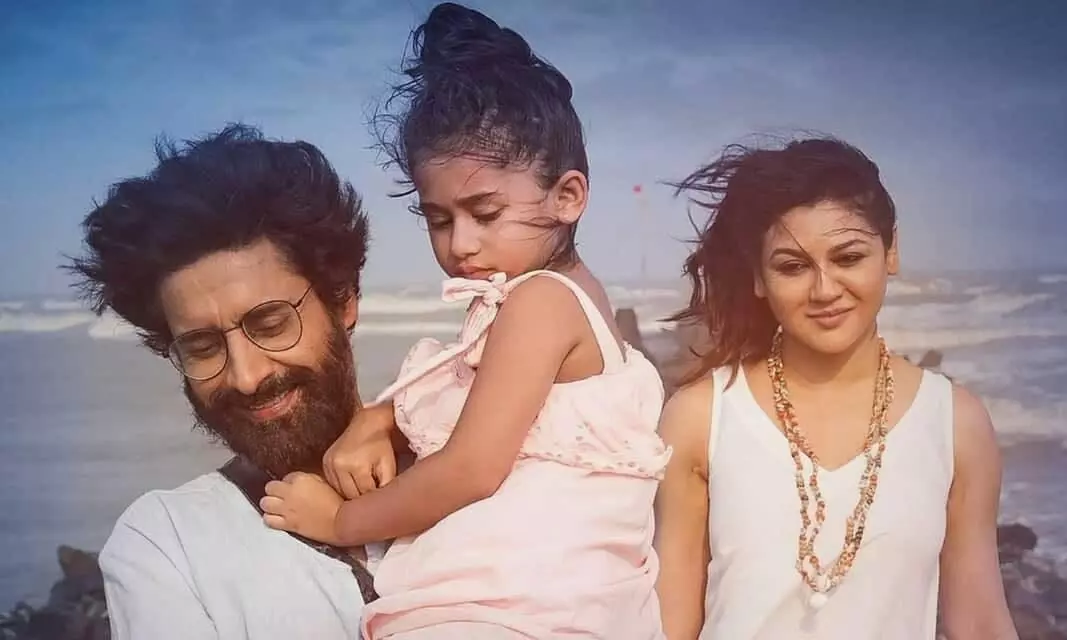Dear Maa: Film that tugs at your heart
Anirrudha Roy Chowdhury’s latest Bengali film also has an important message to share

Film: Dear Maa
Director: Aniruddha Roy Chowdhury
Star cast: Jaya Ahsan, Chandan Roy Sanyal, Ahana, Nandika Das, Anubha Fatehpuria
Rating: 3.5 stars out of 5
Picture this. You’re a working woman, married for over five years, living a cushy life, but you don’t want to be a mother. Brace yourself, because you will be judged. It doesn’t matter if you’re one of the co-founders of your company or even the primary provider for your family. If you’re not a mother, your womanhood will be questioned. Yes, even in the 21st century, this is still true, however hard it might be to digest. And God forbid, if you choose not to become one. That’s practically blasphemy. But here’s the truth. More women today are choosing to be child-free. They’re often labelled ‘selfish’, their womanhood questioned and their choices scrutinised. But at the end of the day, it’s all about choice. And that’s exactly what the word ‘choice’ means in Aniruddha Roy Chowdhury’s latest Bengali film ‘Dear Maa’. Whether it’s Brinda (Jaya Ahsan), Arko (Chandan Roy Sanyal) or Jhimli (their adopted daughter, played beautifully by Ahana and Nandika Das), the choices of each character matter.
Cinema also needs to start conversations that matter. Conversations that challenge patriarchy, that normalise the idea that not just mothers, but fathers too can play the role of caregivers. That acknowledges motherhood is not every woman’s calling. That celebrates the right to say ‘no’. Unapologetically. That’s where ‘Dear Maa’ strikes the right chord.
I’ll admit. The trailer gave away a little too much and that was a bit disappointing. But thankfully, Aniruddha, who returns to Bengali cinema after a decade (his last being ‘Buno Haansh’ in 2014, which, in many ways, was a turning point for Dev’s career choices), keeps the best moments for the big screen. In the film, Brinda, a workaholic married woman, doesn’t want to be a mother. And she’s unapologetic about it. But Arko does. So, after some couple’s counselling sessions, they decide to adopt. The film begins as a thriller, then gently flows into a dramatic space, but without going overboard. Is blood thicker than love? Or do relationships beyond blood matter just as much? The film explores this with genuine emotion.
Aniruddha’s past Bengali films, ‘Anuranan’ and ‘Antaheen’, have also prioritised emotions. He does that again in ‘Dear Maa’. The constant tug-of-war between Ahana (Padmapriya), Jhimli’s birth mother and Brinda, her foster mother, could’ve easily become melodramatic. Even Jhimli’s emotional turmoil could’ve slipped into overkill. But Aniruddha handles it with finesse, especially Jhimli’s inner struggle. There’s this tender moment where Brinda packs Jhimli’s bag and tells her to leave. In that moment, you feel for Brinda, because deep down, there’s that subconscious sense of belonging… She feels like Jhimli is her daughter.
Avik Mukhopadhyay is a master of light and shade. His tight frames and subtle lighting help you feel what the characters are going through. One beautiful example is a scene where the camera moves from one balcony where Jaya stands, to the next where a drunken Chandan is slumped. Then there’s the brilliant use of weather to reflect the mood, like the storm outside when Jhimli tells Brinda she doesn’t love her and she isn’t ‘hers’. That storm becomes a mirror to the chaos inside them. And Bickram Ghosh’s music? It amplifies the emotion perfectly.
Aniruddha makes a brilliant casting choice with Chandan Roy Sanyal as the father, juggling both emotional and parental responsibilities. He’s a complete revelation. Anubha Fatehpuria, though in a brief role, leaves a mark. Saswata Chatterjee yet again proves that, give him any role and he’ll turn it into something memorable. And then there’s Jaya. Such a powerhouse performer. This role elevates her even more. That said, I do wish she’d work a bit more on her Kolkata-style Bengali.
The child actors, Ahana and Nandika, are absolute gems. Especially the scene where toddler Jhimli (read Ahana) asks Brinda while playing chess, “Where is my mother?” You’ll want to hug Ahana. I hope the film could give us a bit clearer picture of how Jhimli and her birth mother reconnected, especially considering how tightly adoption records are typically guarded. Also, while the first half takes its time building up the characters and the world (which feels justified), the second half, especially the final stretch, feels a bit rushed. But despite that, the film’s heartbeat lies in the tug between possessiveness and letting go - and that it delivers beautifully. Let’s just hope Aniruddha doesn’t wait another 10 years to give us another Bengali film. Don’t miss the closing credits of ‘Dear Maa’.



